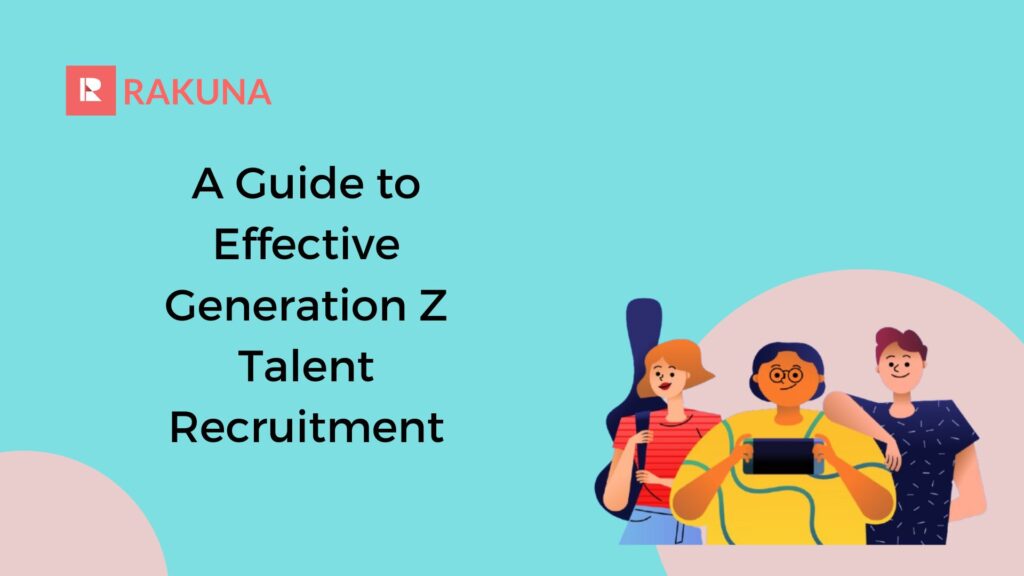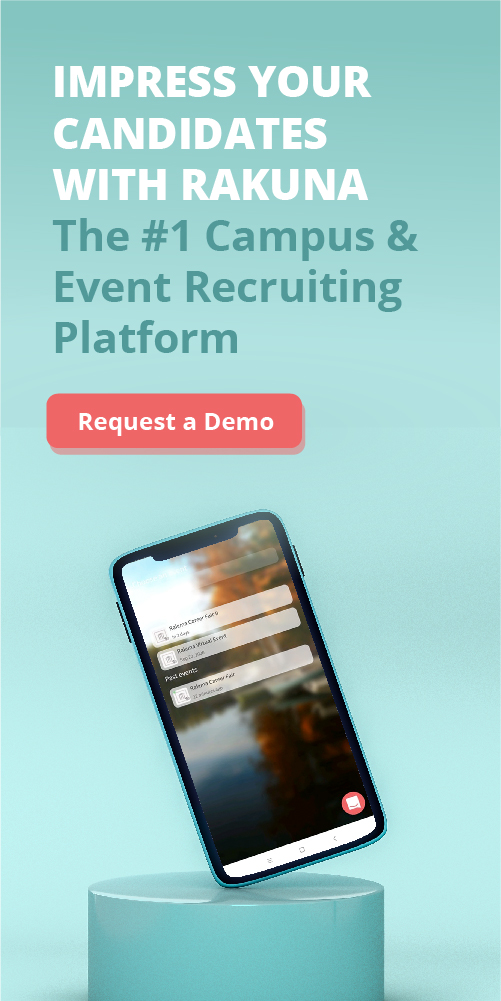Gen Z and even the first wave of Gen Alpha are flooding college campuses—and soon, your candidate pipeline. Together, they’ll make up about 30% of the global workforce by 2030 (Johns Hopkins University, 2023).
And yet, too many university recruiters are still stuck in old-school ways that just don’t click with these young professionals. If you want to know whether your approach is turning them away before you even say “Hello,” use this quick self-check. For every statement that feels like you, give yourself one point.
1️⃣ You Still Focus on Experience Over Potential

Let’s face it—fresh grads don’t have 10 years of job titles to show off. But they bring passion, coachability, and culture-fit potential that can’t be taught in a textbook.
A multi-year Leadership IQ study analyzing 5,247 hires found a staggering 89% of new-hire failures were due to poor attitude, chiefly a lack of coachability, not technical deficiencies. So, if your screening is stuck on outdated job histories, you’re likely missing out on the future stars.
How can recruiters attract young talent beyond traditional resumes?
To attract young talent today, recruiters need to look past just job titles and old-school resume checkboxes. Here’s how top employers do it:
- Look beyond the resume: Focus on potential, curiosity, and a candidate’s ability to grow, rather than just previous job titles or internships.
- Value passion and enthusiasm: Prioritize candidates who show genuine interest and excitement for the field. Passionate hires often learn faster and stay engaged longer.
- Assess cultural fit: Hire people whose values and personality align with your company’s culture. A good fit leads to better teamwork and retention.
- Check communication skills: Strong communicators thrive in today’s workplaces. Look for candidates who can clearly express their ideas and collaborate effectively.
- Provide growth opportunities: Back up your promises with real training, mentorship, and career development paths. Gen Z candidates especially want to see how they’ll grow with you.
By shifting your hiring mindset this way, you’ll open the door to motivated young professionals who can adapt fast and help your company evolve.
2️⃣ Your Internship Program is One-Size-Fits-All

Internships are great, but they’re not the only path.
Today’s students crave diverse, immersive experiences: hackathons, externships, shadowing, volunteering, and even guest lectures.
Think creatively and offer a variety of opportunities for college students to gain insights into your office environment and culture. Offer shadowing experiences, informational interviews, volunteer opportunities, or even a hackathon challenge with your internal employees. Contact professors and student organizations directly to set up speaking and presentation opportunities in the classroom or on campus.
💡 Forward-thinking companies like Baker Tilly run “Spend a Day” and externship events for sophomores and juniors to connect with employees, test out roles, and feel the company culture up close.
If you’re still only offering a single 12-week option every summer, you’re missing out on students who want creative touchpoints – hackathons, volunteer gigs, shadowing, or professor-led sessions on campus.
How can recruiters move beyond rigid internship programs?
To attract young talent today, recruiters need to look past just job titles and old-school resume checkboxes. Here’s how top employers do it:
- Look beyond the resume: Focus on potential, curiosity, and a candidate’s ability to grow, rather than just previous job titles or internships.
- Value passion and enthusiasm: Prioritize candidates who show genuine interest and excitement for the field. Passionate hires often learn faster and stay engaged longer.
- Assess cultural fit: Hire people whose values and personality align with your company’s culture. A good fit leads to better teamwork and retention.
- Check communication skills: Strong communicators thrive in today’s workplaces. Look for candidates who can clearly express their ideas and collaborate effectively.
- Provide growth opportunities: Back up your promises with real training, mentorship, and career development paths. Gen Z candidates especially want to see how they’ll grow with you.
By shifting your hiring mindset this way, you’ll open the door to motivated young professionals who can adapt fast and help your company evolve.
3️⃣ Your Interviews Feel Like an Interrogation

A stuffy boardroom, a panel of stern faces, and three hours of repetitive questions? This is the quickest way to lose your talent. The CareerPlug’s 2025 Candidate Experience Report says 66% of U.S. job applicants accepted offers because of a positive candidate experience, and 36% declined offers specifically due to a negative interview experience
Try this instead: hold a casual coffee chat, set up a video interview for convenience, or give a tour of the workspace. Let them meet potential teammates. An interview can be another opportunity to showcase and improve your brand experience.
💡 Read more on how to boost your brand image before, during, and after an interview
Quick tips to modernize your interview process
Here are some actionable recommendations your team can start with, especially for university recruiters:
- Embrace Informality: (If applicable) Consider conducting interviews in more casual settings, such as a cafeteria or coffee shop, to create a relaxed atmosphere conducive to open conversation.
- Utilize Technology: Leverage video chat platforms or interview scheduling software for remote interviews & candidate self-scheduling to enhance flexibility and convenience for both candidates and interviewers.
- Showcase Company Culture: Use the interview as an opportunity to showcase your company’s values, culture, and workplace environment to candidates.
- Introduce Potential Colleagues: Allow candidates to meet and interact with potential coworkers during the interview process, giving them a sense of the team dynamics and camaraderie.
- Provide Office Tours: Take candidates on a tour of the office to familiarize them with the workspace and highlight key amenities and features.
4️⃣ You Are Neglecting Social Media (Except LinkedIn)

Sure, LinkedIn is great. According to Kinsta’s LinkedIn statistics roundup, 95% of recruiters regularly use LinkedIn for job recruitment efforts. With over 69 million companies listed and 65 million people searching for jobs weekly, it’s no surprise LinkedIn dominates the hiring space – not participating in LinkedIn as a recruiter is simply illogical.
But here’s the challenge: Gen Z isn’t only scrolling job boards. Roughly six-in-ten teens say they use TikTok and Instagram, and 55% say the same for Snapchat, according to PEW Research Center.
In 2015, Goldman Sachs, having anticipated this trend, decided to chase after their talent by running 10-second ads on Snapchat’s Campus Story at over 50 universities. During this period, Goldman Sachs experienced notable growth in traffic to its Careers site, with an 82% surge in users from organic search and an 11% overall increase in site visits.
The takeaway? Go where students already are—post authentic content, reply quickly, and don’t be afraid to show some personality.
5️⃣ Your Application Form is a Buzzkill

Nobody has time to answer 50 questions on a glitchy portal.
In 2024, a survey of 925 Gen Z individuals from Jobera, a career portal specialized in remote roles, discovered that 68% quit because the hiring process was too long or complicated, and 52% quit because they had to do a free test task
So what can you do as a recruiting team? Streamline the process. Mobile-first. Autofill basics from LinkedIn. Keep questions relevant and short. Or offer a “one-click apply” where possible. Make it easy—and they’ll stick around to learn more about you.
6️⃣ Your Employer Brand Screams “Boomer”

Sometimes you just have to admit it—your brand image might feel stale to 22-year-olds. Similar to the General Electric case, Ford is a 120-year-old automaker now pitching itself as a clean-energy innovator and software mobility company. They even run TikTok campaigns with young engineers to shake off the ‘dad’s truck’ vibe.
In 2022–2024, Ford launched its Ford Next division, focusing on mobility, software, and digital skills, branding it as a “startup within Ford.”
If your story isn’t exciting, build one that is. Refresh your visuals, share real employee stories, and invite young hires to help shape the narrative.
How can recruiters refresh their employer brand to attract young talent?
If your company’s brand feels outdated or “unsexy” to students and new grads, it’s time for a refresh. Here’s how smart university recruiters keep their brand relevant and appealing:
- Define your EVP clearly. Spell out what makes your company worth working for. Talk about growth opportunities, a supportive culture, and the real impact people make on the job.
- Update your look and feel. Modernize your logos, colors, and visuals so they feel fresh and current. A small brand facelift can help you stand out to Gen Z candidates.
- Tell better stories. Use real stories to share your mission, values, and what daily work life is like. Get your employees involved—candidates trust genuine voices more than polished ads.
- Be open and honest. Today’s young talent values transparency. Talk openly about your goals, challenges, and plans for the future. It builds trust and sets you apart.
- Showcase life inside your company. Post behind-the-scenes photos, employee highlights, and event recaps on Instagram, TikTok, and LinkedIn. Meet your audience where they scroll.
- Turn employees into advocates. Encourage your people, especially your younger team members, to share what they love about working with you. Their stories help future hires picture themselves on your team.
A strong employer brand does more than look good—it makes students feel like they belong before they even apply.
7️⃣ You Perform Slow or No Follow-up Communication

Unless your company has established a strong brand (top 10 places to work for, etc.), you can’t always expect students to come to you. You need to perform rapid-fire communications to keep candidates interested in your company and avoid them from “slipping through the cracks” due to your lengthy, delayed communication process.
After connecting with a student at a career fair or recruiting event, immediately initiate a follow-up with them with links to your website for application.
How can recruiters keep young candidates engaged after events?
Staying connected with students after a career fair or info session can make or break your hiring results. Here’s how to keep young talent interested from first “hello” to signed offer:
- Follow up fast. After you meet a student, don’t wait days to reach out. Send a quick, friendly follow-up email right away. Add helpful links to open roles or your career site so they can take action easily.
- Use smart mobile tools. Apps like Rakuna help recruiters capture candidate details on the spot. No lost resumes, no missed follow-ups—just smooth communication students actually appreciate.
- Add interactive content. Make your website a place students want to click around. Use real employee video stories, virtual office tours, or short quizzes that show off your culture and keep Gen Z curious.
- Stay active on social media. Post updates, celebrate your team, and reply to comments. Showing up consistently on LinkedIn, Instagram, or TikTok keeps your company top of mind long after the event.
- Personalize your messages. A generic follow-up doesn’t cut it anymore. Mention what you discussed at the booth or why you think they’d be a great fit—show you were listening.
- Be proactive, not passive. Don’t just stand behind a table waiting for students to walk up. Attend workshops, panels, or club events where you can connect more naturally and build trust over time.
Quick, personal, and visible communication shows students you value their time—and makes them far more likely to say yes when the offer comes.
[Drum roll…]Let’s tally up your results!
Score more than 3? Your company is definitely too traditional for young candidates. In that case, boost your recruiting strategies with this Comprehensive Guide to Hiring Gen Z Candidates:
Rakuna’s Guide to Recruiting Generation Z Effectively

This “Hiring Gen Z” Guide will provide insights into:
- Essential Knowledge to understand Gen Z as the next wave of talent
- Strategies and Best Practices for Hiring Gen Z Effectively
- How to Best Manage and Retain Gen Z at the Workplace


